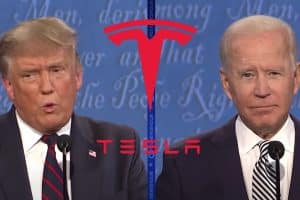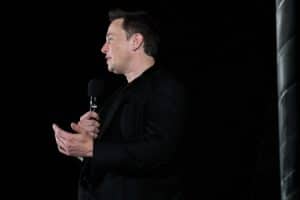Tesla Head of Investor Relations Martin Viecha recently shared some important insights about the real “competition” that the company is facing. According to the executive, Tesla is not really competing against competitive electric vehicles. Instead, the company is looking to take market share from the general auto segment, which remains dominated by the internal combustion engine until today.
The topic of the “Next Tesla” or the myth of the “Tesla Killer” has been around for a very long time. Such a topic became quite prominent recently as new electric vehicle makers such as Lucid Motors started customer deliveries and electric truck maker Rivian debuted on the public market with a valuation of around $100 billion. As these new players started gaining momentum, mainstream questions were raised about whether Tesla could keep its lead in the EV sector amidst the rising “competition.”
Viecha noted in a Twitter post that he had been asked about Tesla’s competitors practically daily for the past five years. But despite the prevalence of the idea that new EV makers are competing with Tesla to gain a bigger share of the electric vehicle segment, the Head of Investor Relations noted that ultimately, the discussion should not even be about the EV market. Instead, it has to be about the fact that even this year, well over 90% of vehicles that are sold would be equipped with the internal combustion engine.
“For the past 5 years, I’ve been asked some version of “and what about all the competitors” pretty much daily. Well over 90% of cars sold *this year* will be ICEs. It’s the ICEs that lose share to *all* competitive EVs. It’s surprising that this is still not an established view,” Viecha wrote.
And that’s really the crux of the matter. Through its efforts to create competitive electric vehicles, Tesla has been steadily hacking away at the market share of gas and diesel-powered cars. Tesla did not set out to just be a dominating presence in the EV segment; the company is aiming to pull the general auto industry towards battery-powered vehicles as a whole. And so far, this has been a pretty effective strategy. The EV market is growing every year, and pretty soon, it would be quite difficult to argue that the electric car segment is simply getting more crowded as more battery-powered cars are released.
Tesla is competing with the greater ICE market, and so are companies such as Lucid and Rivian. Lucid has been pretty open about the idea that the Air sedan would be competing with luxury vehicles like the Mercedes-Benz S-Class, and Rivian has also been fairly open about the notion that its R1T pickup truck is designed to replace the diesel-powered monsters that overlanders tend to use on their adventures. Overall, the Tesla executive’s message is clear.
Electric vehicle makers are not competing for the biggest portion of the EV segment’s pie. True electric vehicle makers are setting their sights on a much bigger target — and their journeys are still just beginning.





